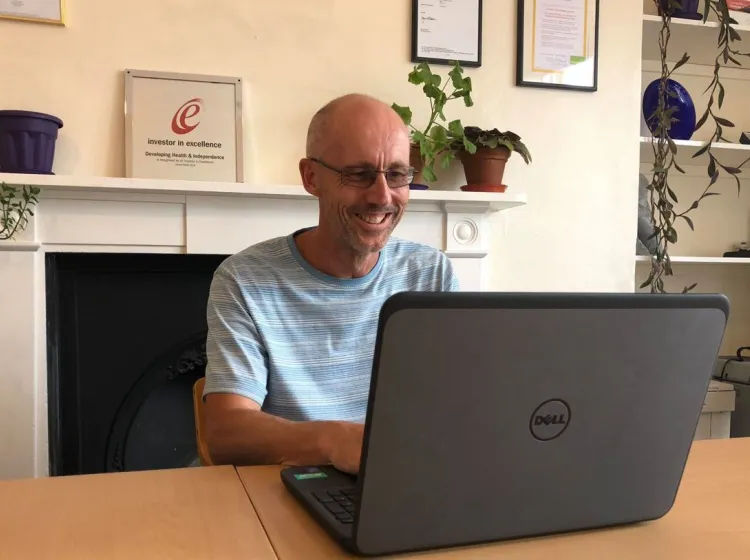
Twenty years with DHI! How did your journey with DHI begin?
NB: Ha! By accident! I was looking for a career change without really knowing what I wanted to do. I volunteered at a homeless day center in Trowbridge, and at some point, a vacancy for an outreach worker came up at DHI. I applied for it, and I got it!
NB: Twenty years have flown by. My career has progressed naturally. Previously, I had never worked anywhere longer than four years when I was an apprentice printer. I spent some time traveling, some as a gardener, and as a tree surgeon – but they were always just jobs. At DHI, I have always loved the work! No two days are the same; it's certainly never boring!
Is there a particular highlight that stands out from your time at DHI?
NB: Yes, the launching of the Housing First service and getting that off the ground. As a sector, we have been striving for Housing First for a number of years.
NB: Housing First works exactly as it sounds. Typically, for individuals to be housed permanently, they would need to go to a night shelter, possibly supported housing, and jump through a number of hoops just to qualify for housing. Many people – for various reasons, such as poor mental health, substance dependency, or anything else – will never be able to follow those steps to get into a position for permanent housing.
NB: Housing First, which was pioneered in the US, flips that on its head. It says put people in housing first and then create the conditions for them to maintain tenancy that way. And there is a lot of evidence to suggest that it works. You don't need to tell people 'you need to be in sessions twice a week, and then we will put you on a waiting list.' The housing comes first. Housing is a human right and not something to be earned.
NB: We have twenty-plus people on Housing First in Bath. When we got the first person into a housing first property, that was a real sense of pride. People have been housed who, without this service, would never have been housed. Some of these people would have died on the street.
What advice would you give anyone who is thinking of a career and considering working for DHI?
NB: It's all about character. If you have the right attitude and values life and lived experiences, Don’t think you need lived experience as such but is more about attitude you can come into this sector perfectly.
NB: I think volunteering is a great way to start. As much as anything, it can tell you what you don't want to do as well as what you do! I really think we need to encourage people with transferable skills and nature; you can do really well here. If you are empathetic, understanding, and practical, you will thrive.
What does the next 20 years hold for you, for DHI, and the sector as a whole?
NB: It all comes down to funding. It depends on trends, how councils operate, and what the new government, should there be one, has in store.
NB: Ultimately, we would like to do ourselves out of a job. You would like to think there wouldn't be a need for organisations like DHI in the future; that is the ironic truth. But as long as there is a need, we will be here, doing our best to help as many people as we can.
Get news from Developing Health & Independence in your inbox. See our privacy policy.